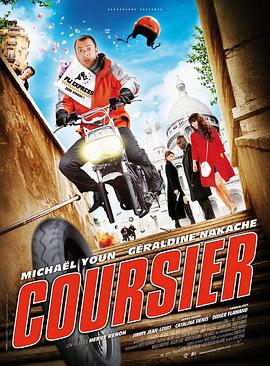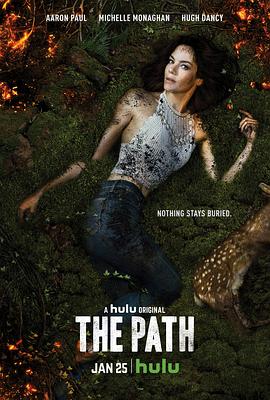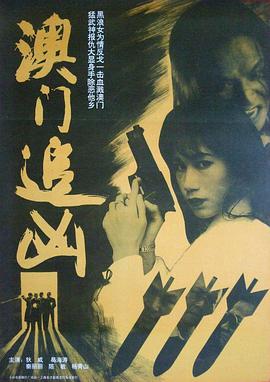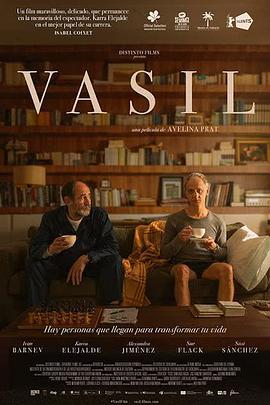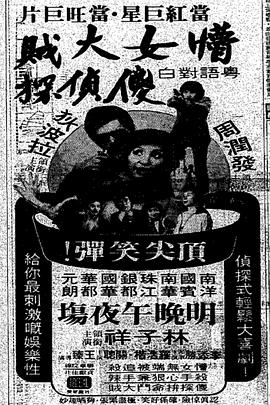狄迪尔·弗拉蒙韦林玉
搜索 "狄迪尔·弗拉蒙韦林玉" ,找到 部影视作品
导演:
主演:
剧情:
《终极快递》是法国电影大师吕克·贝松自《的士速递》系列后有意打造的又一个系列飙车电影。 山姆(迈克尔·扬 Micha?l Youn 饰)是一个信使。他每日飞车穿过巴黎,常常无视交通的基本规则。他必须出席婚礼以试图挽救与女友纳迪娅(杰拉尔丁·纳卡什 Géraldine Nakache 饰)的关系,然而这天他没有选择地只能接受他的老板紧急差事,去送一个快件。为了完成任务他不得不扮演罪犯的帮凶,将价值连城的珠宝送至巴黎市中心的豪华酒店。当他一身快递装扮进入大厅时,前台经理有些嗤之以鼻,但在山姆报上名号后,经理态度则180度大转弯,令人忍俊不禁。山姆也没有想到自己能入住总统套房,而在房间里还有一位美女等着他.......
导演:
主演:
剧情:
故事设定在“猿流感”病毒蔓延全球的背景下,人类几近毁灭,而进化为高级智慧生物的猿类一跃成为食物链顶端的王者。时移世异,暴虐的猿类首领赛撒(凯文·杜兰 Kevin Durand 饰)在一片废墟中建立起猿族历史上的第一个帝国——“猩球”崛起,这是世界新秩序诞生的黎明时分。神秘的人类女孩诺娃(弗蕾娅·艾伦 Freya Allan 饰)的出现,引起了赛撒的警觉。她似乎掌握着一个巨大的秘密,不仅关乎人类的存亡,甚至可能再度颠覆整个“猩球”。被迫逃亡的诺娃在躲避赛撒军队的过程中,与青年猿类诺亚(欧文·泰格 Owen Teague 饰)的命运交汇,揭开了一段冒险的旅程。
导演:
主演:
剧情:
故事设定在“猿流感”病毒蔓延全球的背景下,人类几近毁灭,而进化为高级智慧生物的猿类一跃成为食物链顶端的王者。时移世异,暴虐的猿类首领赛撒(凯文·杜兰KevinDurand饰)在一片废墟中建立起猿族历史上的第一个帝国——“猩球”崛起,这是世界新秩序诞生的黎明时分。神秘的人类女孩诺娃(弗蕾娅·艾伦FreyaAllan饰)的出现,引起了赛撒的警觉。她似乎掌握着一个巨大的秘密,不仅关乎人类的存亡,甚至可能再度颠覆整个“猩球”。被迫逃亡的诺娃在躲避赛撒军队的过程中,与青年猿类诺亚(欧文·泰格OwenTeague饰)的命运交汇,揭开了一段冒险的旅程。
导演:
主演:
剧情:
故事设定在“猿流感”病毒蔓延全球的背景下,人类几近毁灭,而进化为高级智慧生物的猿类一跃成为食物链顶端的王者。时移世异,暴虐的猿类首领赛撒(凯文·杜兰 Kevin Durand 饰)在一片废墟中建立起猿族历史上的第一个帝国——“猩球”崛起,这是世界新秩序诞生的黎明时分。神秘的人类女孩诺娃(弗蕾娅·艾伦 Freya Allan 饰)的出现,引起了赛撒的警觉。她似乎掌握着一个巨大的秘密,不仅关乎人类的存亡,甚至可能再度颠覆整个“猩球”。被迫逃亡的诺娃在躲避赛撒军队的过程中,与青年猿类诺亚(欧文·泰格 Owen Teague 饰)的命运交汇,揭开了一段冒险的旅程。
导演:
剧情:
澳门东方科技院首席工程师曲兴裂在街头惨遭杀手枪杀。当时恰巧被《快报》记者于明路过目睹,她拍下照片并发现曲工程师身边的“辞职报告”。 曲兴裂的儿子曲强曾在大陆习武三年,练就了一身好功夫,人称“武神”。他得知父亲被害的噩耗,悲痛之极,发誓要查明真相为父报仇。他找到父亲的老同事林挺柱了解到,原来曲兴裂研制了一种飞弹,上司罗主任拉拢他合伙走私军火,刚直不阿的曲工程师断然拒绝,罗主任怕走露风声,便杀人灭口。 曲强又来到快报杂志社,向于明了解父亲遇害经过。记者的正义感使于明决心帮助他。她把那份能说明问题的辞职报告交给了曲强。 歹徒们先下手了,他们杀死了知情者林挺柱。 曲强、于明和警察得到情报赶到歹徒们交接军火的集装箱货场。警局刑事组正、副组长贪赃枉法,早已同走私团伙狼狈为奸,里应外合。在激战紧急关头,有意放跑了接头的洋人查里、强纳和歹徒小浪人。 追踪到一个慈悲会...
导演:
剧情:
瓦西尔是一个聪明而有魅力的保加利亚移民,尽管他无家可归,但还是凭借着惊人的国际象棋和桥牌天赋在城里的一个高级俱乐部出了名。在一位爱尔兰女士的帮助下,他来到阿尔弗雷多家暂住。原本只是一个几天的临时安排,很快就延长到了好几个月。阿尔弗雷多和瓦西尔有着巨大的差距:阿尔弗雷多有自己顽固的生活方式,而瓦西尔过着放荡不羁的生活,对国际象棋的热情是他们唯一的共同点。尽管如此,瓦西尔终将敲开阿尔弗雷多的心门,因为他能让所有与他相识的人,都因他而变得不同。
导演:
剧情:
This is not a large scale multi-million dollar epic of World War Two. No thousands of extras, no wide panoramic sweep of battle scenes. This says more about The Battle of the Bulge than the movie of the same name. It's just an ordinary black and white M.G.M. production. What it lacks in size and scope it makes up for in impact.A simple story very well told, of a squad of GI's of the 101st Airborne Division, thrown into the maelstrom that was the German offensive in the Ardennes in December of 1944 against the Allied ground forces. It's hard to believe that this film was not shot on location; but on a Metro sound stage. And Metro's Culver City was turned into the only outdoor location for the snow-covered, rubble-strewn town of Bastogne under siege, which was tenaciously held by the 101st, under the command of Brig. General Anthony McAuliffe. With the exception of Van Johnson as Pvt. Holly who was high profile on the Metro lot in his time, and George Murphy as Pvt. Stazak, the rest of the cast were character-type actors who filled their roles perfectly. James Whitmore as Sgt. Kinnie is drilling the squad in the opening scenes. The squad members talk of an enjoyable furlough in Paris which is suddenly cut short by the German breakthrough in the Ardenne. Ptv. Stazak hopes of going home are dashed because his authorised documents have not come through before the squad moves up front. Douglas Fowley as Pvt. Kippton seems to be the best in the squad at bellyaching.Maybe it's his dentures that make him a sourpuss. But Fowley's dentures turn into a class act; clicking away to the old song, "I Surrender Dear," through the courtesy of a German propaganda broadcast heard over the radio in a Sherman tank. Denise Darcel comes as a welcome relief of feminine pleasure; not out of place in the town of Bastogne itself. In an indoor scene, Pvt. Holly's eyeballs go into left-to-right overdrive as he stares at Denise's buxom rear end descending a flight of stairs. Then there's Holly again, nursing stolen newly-laid eggs, as valuable as gold nuggets. He's about to scramble them over a fire when the squad is told to saddle up and move out. Not for the first time does Johnson (Pvt. Holly) yell, "oh no!" A expression he's used in past movies also. The broken eggs in his upturned helmet are now a problem. In the end it's disaster. The German artillery scramble the eggs for Holly. Problem solved! On a three man patrol, Holly, Hodiak as Janness, Montalban as Rodriguez, intercept and force a jeep carrying a Major and two sergeants to stop and identify themselves. The knowledge that Germans are infiltrating in GI uniforms has made the patrol suspicious so the Major is asked how the Dodgers made out in 1944. The Major hesitates,but the Sergeant in the rear seat asks Holly who Betty Grable is married to. Montalban shouts back, "Cesar Romero". The Major says Romero is out. "Betty Grable is married to Harry James". The tense atmosphere relaxes. The patrol is convinced they're friendly. What is displayed authentically on this studio sound stage is the icy, bone-chilling atmosphere of the battlefield. The men hunkered down; the deeper the better, in their foxholes. Throughout nearly all this movie there is the constant rise and fall in the background of continuous artillery fire, like a rolling thunder. It never seems to cease. Sometimes it's close, sometimes distant. That, along with the freezing fog hanging like a thick whitish-grey blanket in the air, enveloping everything, gives off an atmosphere of crisis; a feeling of fearful tension. The men endeavour to dispel the fear with humour. Waiting and wondering when the enemy will appear ghost-like out of the mist-shrouded forest. Near the end of the movie, Leon Ames gives a good performance as a Army Chaplain. Trying to explain the reason for this necessary trip to Europe, to kill off a murderous political system that has already killed off millions. Before the end, the tables turn in the Allies favour. Sergeant Kinnie notices his shadow against the snow. The sun is breaking through and the mist rises. Allied tactical air power is back in business again with a vengeance. Veteran director William Wellman was not found wanting when he directed this movie. He had already proved himself with, "The Story of GI Joe", in 1945. Antiwar film? Any war film well made and convincing can be antiwar, and you do not need blood all over the silver screen to prove it. Antiwar or not, World War Two was a "popular" war. The reasons stuck out a mile. The Army Chaplain said so in so many words. The Ardennes offensive caught the Allies unawares. By late 1944, battered the German forces may have been. But they still had a few nasty shots in their locker to scare the living daylights out of the Allied Command. We thought the Germans had run out of fighting steam, but old Field Marshal Gerd Von Rundstedt thought different.

